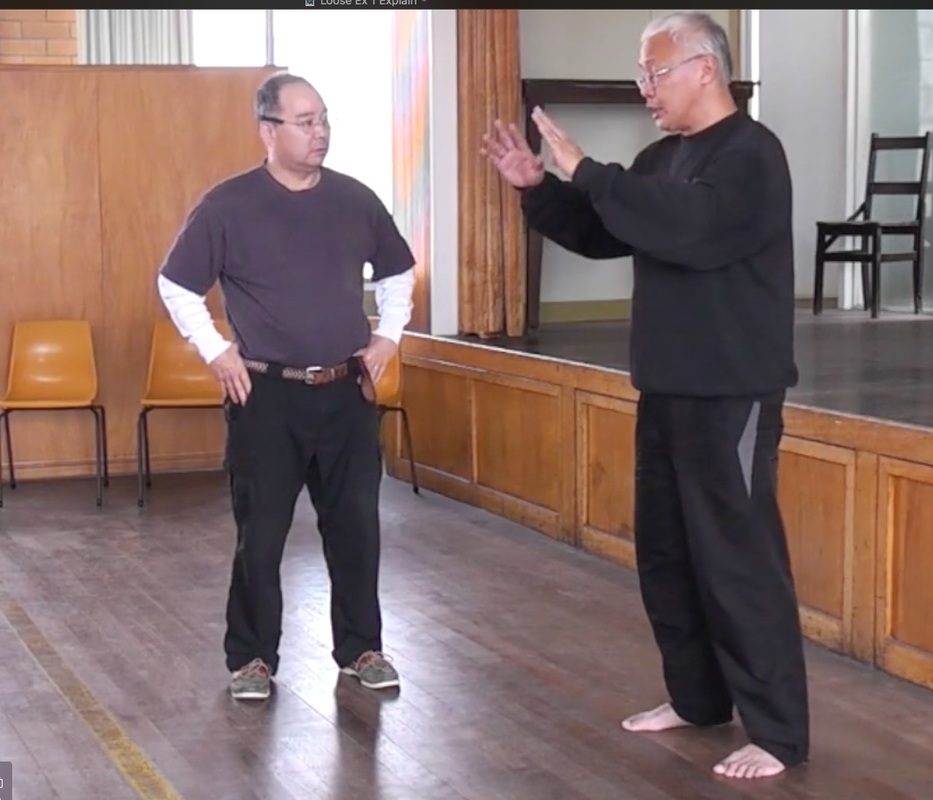|
When the chi is circulating warmly and your movements are flowing freely according to the dictates of your mind, it feels like complete freedom, you're young again. The more you practice the more easily this feeling comes.
0 Comments
Moving slowly, without force, being soft and yielding - and in doing so joining the universe - is the way to longevity. To progress forward, we must go backward as everything requires an opposite. The process should be natural, effortless and without force, instead we are socialized to be forceful, rush madly about and never yield, never ever back down (Zhao,2010).
Translated it means "Utmost Pole" or extreme/limit, beyond this is the Tao and when you reach the end or the limit, you return. This is where the Yin Yang symbol makes sense. No beginning, no end (Zhao,2010). As it is with the flow of energy and movements in the form.
In Qiguang Zhao's book "Do Nothing & Do Everything" Zhao illustrates an insight into "Wu Wei" that I have never heard before. I think it's very original. He says that the uniform, slow, circular movements in Tai Chi is "Wu Wei" - doing nothing. Newton's law says that objects will continue in its uniform motion (law of inertia) until compelled to change by an external force (friction). So in Tai Chi movements we strive to have no resistance in our movements (relaxation) and so the slow, uniform, circular motion is the same as resting (inertia). The movements mimic the uniform, circular motion of the stars and planets, and so we have non action or Wu Wei. My usual interpretation of Wu Wei was of having no visible movement and perhaps the force of the opponent was just transferred through the body an returned when it rebounded from the ground.
As Qiguang Zhao comments in his book on Taoism: the process is more beautiful than the goal. He gives an example where lottery winners experience disappointment with their lives and their sudden fortune because they didn't experience the hard work of building that wealth. As it is with continued Tai Chi practice, enjoy the process of learning, refining, repeating and the feelings of well being that always accompany quality practice and don't keep looking for the results. I know quite few students who (understandably) want to be able to fah-jing well and keep looking to only develop this ability, some take short cuts by looking to other sources to mix in with what their teacher instructs so that they can take the fast track to the "secret", some only pick and choose what to practice and leave out certain exercises that are traditionally taught, some use "force" in lieu of relaxed issuing. However, just enjoying quality practice for the sake of practice seems to be the Taoist way. The rainbow is more beautiful than the pot of gold and the ambition of ownership destroys the beauty.
One thing I 've come to respect (and like) about doing Tai Chi and that is: it is a great leveler. No matter what opinion you may have of your abilities, or of what other people have about you, if you can't make something work and your ego is stung, then you best humbly accept that and stick with doing it as you preach. If you're advocating abiding by the Tai Chi principles then you shouldn't "lose it" and start using "force" in your pushes or trickery in your techniques in defence of your failings. And generally if you can repeatedly make it work, it's a result of your hard work and quality practice, there's nothing to hide behind and the ability can't be "bought."
|
These are my thoughts about various aspects of Tai Chi. They may or may not be original and I try to give credit where credit is due. Wee Kee Jin Workshop Series
"Paid Amazon Links"
Click to set custom HTML
Archives
November 2023
Categories
All
|

 RSS Feed
RSS Feed